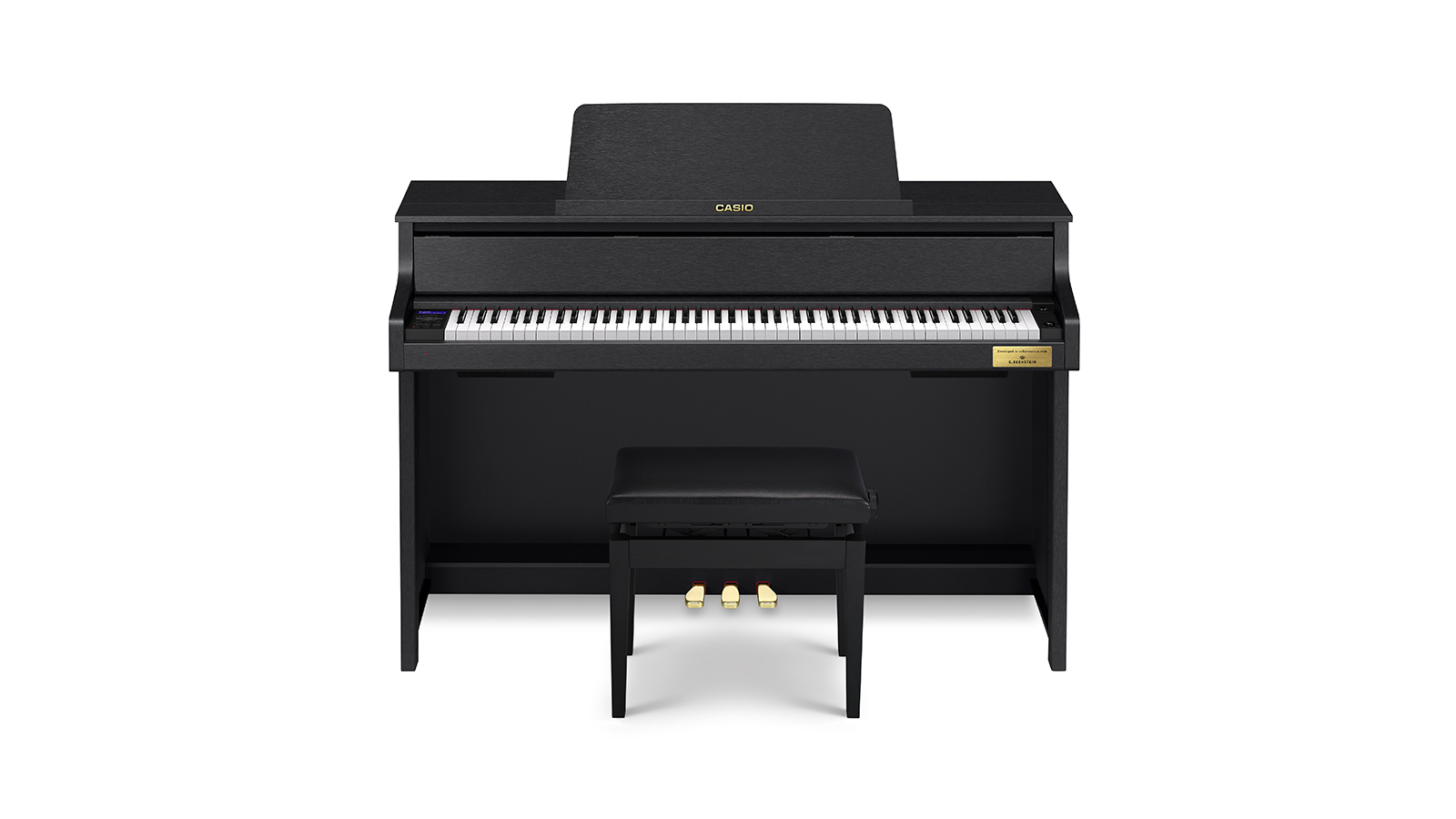MusicRadar Verdict
Casio have done their homework enough to produce an instrument that responds and behaves like a grand piano when you play it, the opening lid and C Bechstein keyboard mechanism making this piano unique amongst its peers. The GP-310 is an extremely capable instrument that should reward pianists of all calibres hugely.
Pros
- +
Smooth, real-feel keyboard
- +
Stunning piano sounds
- +
Keenly priced
Cons
- -
No Bluetooth
- -
Very heavy
MusicRadar's got your back
Casio GP-310 Celviano Grand Hybrid review: What is it?
Casio have made massive strides of late in the quality of both the sounds and keyboards in their digital pianos, and as such are currently positioned right at the cutting edge of digital piano manufacture. In 2019 the Celviano Grand Hybrid range of digital console pianos was launched, featuring a wooden, Natural Grand Hammer Action keyboard. In something of a coup for the company, this entirely new mechanism was developed in collaboration with prestigious acoustic piano manufacturer C Bechstein.
Employing an updated AiR Grand sound engine, the GP-310 reviewed here is the more affordable of the two instruments in the range - its bigger brother the GP-510 features improved piano samples, a finer degree of sensitivity, a glossy finish and revised speaker and pedal systems.
Available in either satin black or natural white wood finishes, the GP-310’s cabinet is a pleasant, understated design with nods to both modern and traditional piano design tropes, although on the front there's rather tacky faux-brass Bechstein plaque that kind of spoils the look.
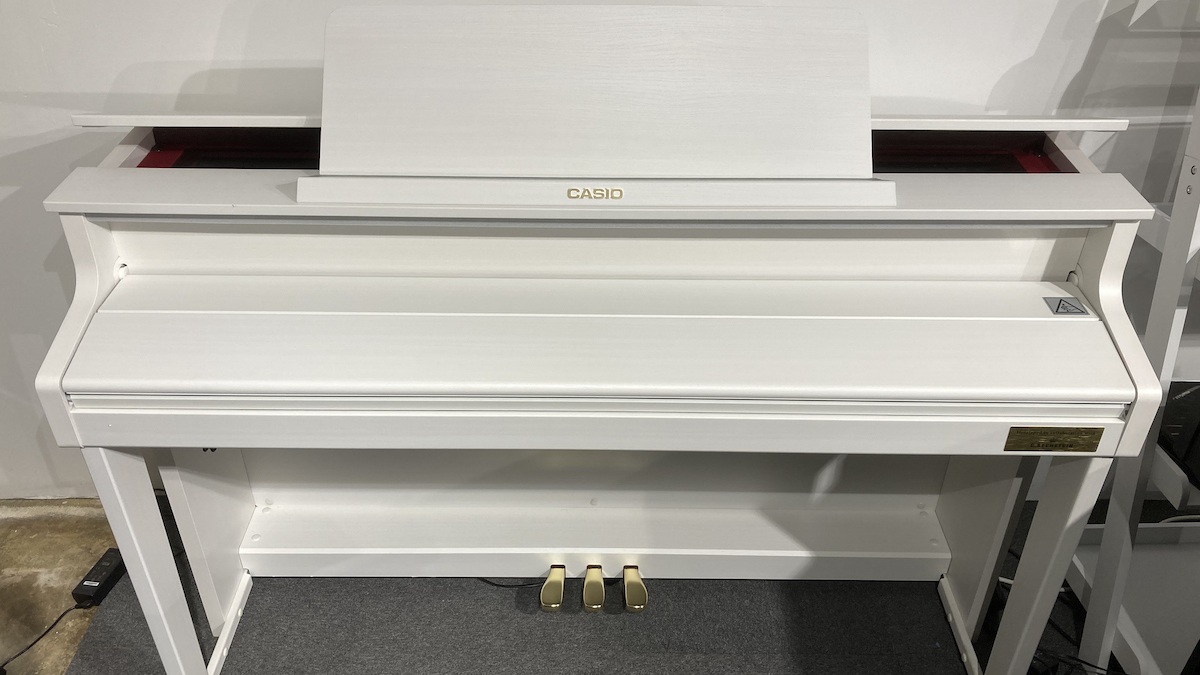
Rather than sliding back into the body of the instrument as on some console designs, the GP-310’s folding keyboard cover folds in half along its width and ends up propped vertically along the back of the keyboard.
Meanwhile, on the top of the piano, a hinged lid opens and props up to simulate opening the lid on an acoustic grand, enabling you to see the wooden hammers moving as you play. Down below, there’s an elegant, yet modern three-pedal Grand Pedal System that offers half-pedal support on the damper pedal and a sostenuto pedal that works exactly as expected.
To the left of the keyboard you’ll find a control panel sporting a backlit LCD display and festooned with a total of 17 buttons that take care of sound selection, playback control of the 60 onboard songs and the Concert Play feature, a function unique to Casio pianos which allows you to choose from a selection of 15 recordings of orchestral pieces by famous composers to play along with. Over on the right is the main volume control and a USB socket for a memory stick, onto which you can record MIDI data of your performances.
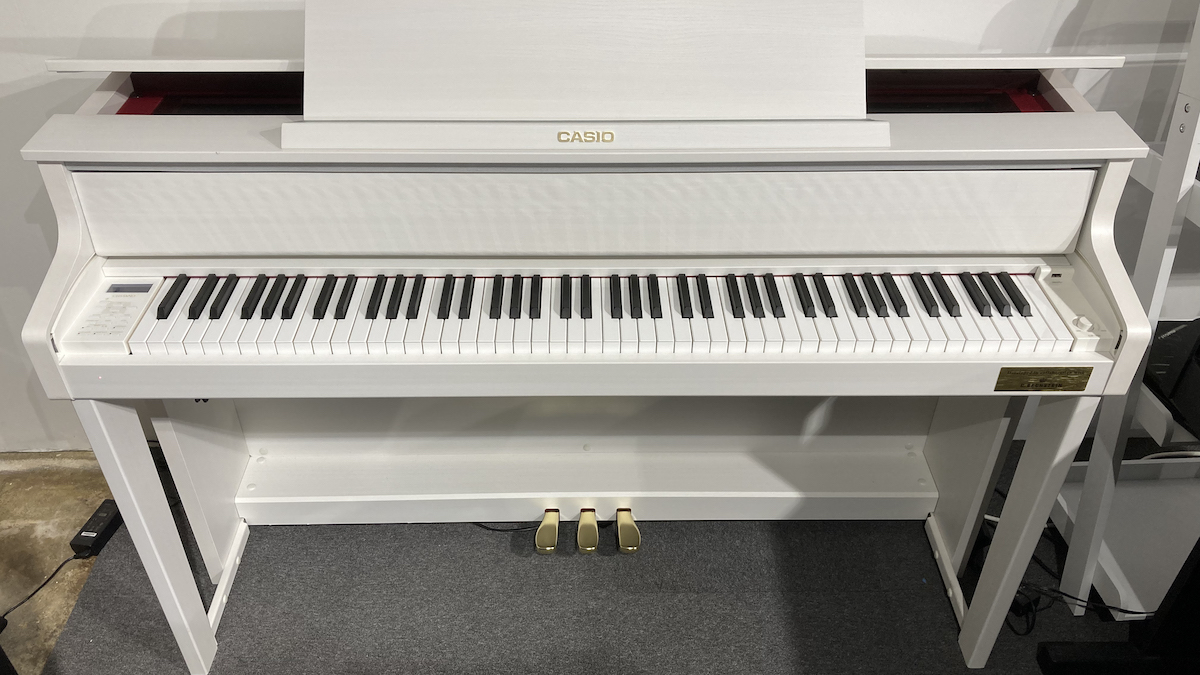
There are two 6.3mm headphone jacks on the underside of the keybed, and a USB to host port hidden on the right end of the module that’s slung under the keyboard that also houses the line ins and line outs. The line ins are presumably to plug external sound sources in to play along with, although it’s a bit of a shame to find no Bluetooth streaming capabilities on an instrument at this level.
Want all the hottest music and gear news, reviews, deals, features and more, direct to your inbox? Sign up here.
There are two downward-firing speakers mounted to the rear of the underside, one at each end of the keyboard, while a fabric mesh strip running along the top of the folded keyboard cover area conceals a pair of front-facing speakers that project the sound towards you.
Casio GP-310 Celviano Grand Hybrid review: Performance & verdict
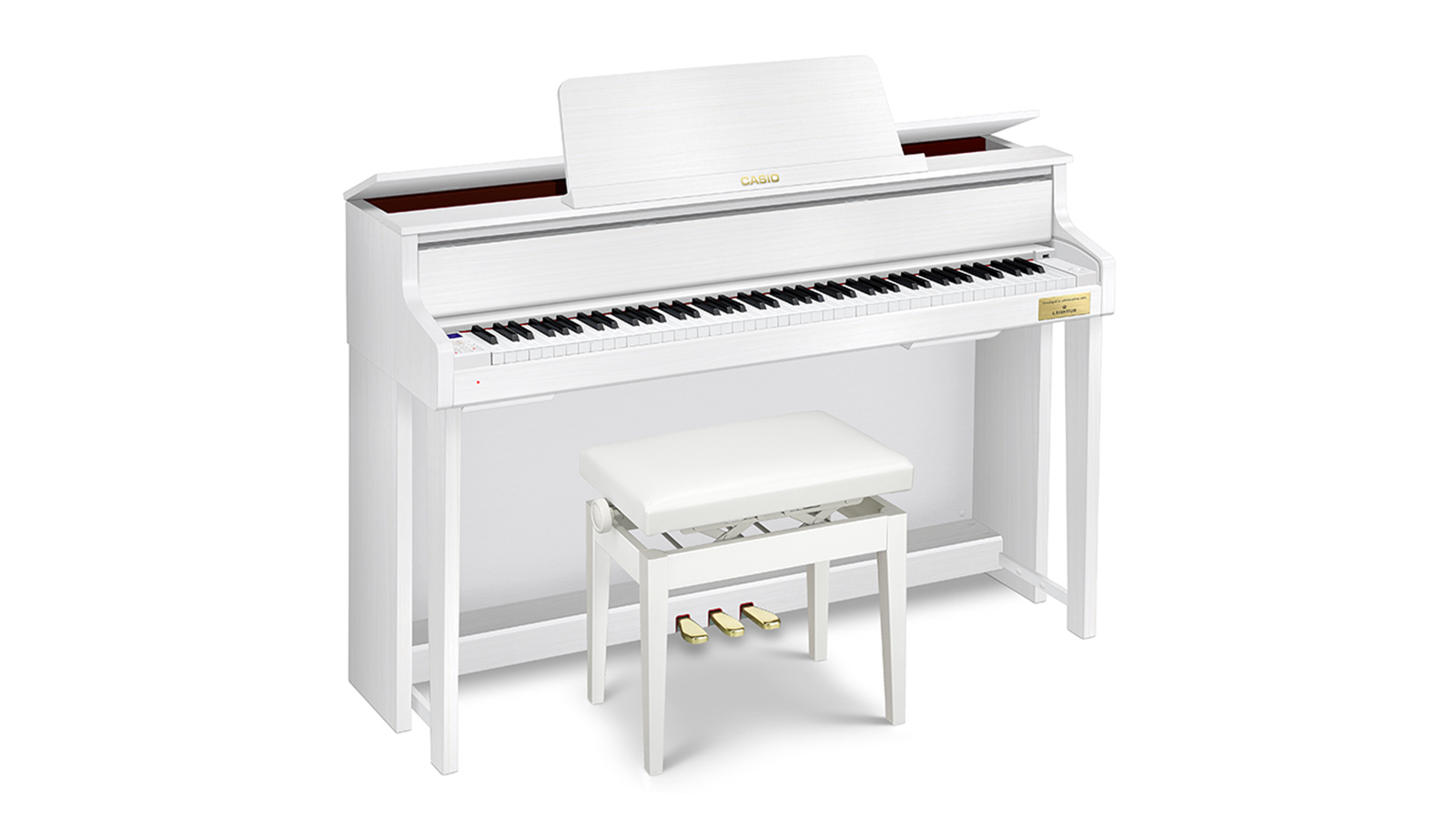
The Bechstein Way
The star of the show here is undoubtedly the C Bechstein-developed, all-wooden keyboard. The key tops are smooth, not textured, but feel no less real than those on the C Bechstein A-series acoustic grand piano we tried in a side-by-side comparison.
The GP-310’s phenomenally realistic action is a touch on the heavy side, but not overly so, and would suit intermediate to advanced players quite happily as well as giving beginner digital piano players something to get their teeth into. In short, it really does feel just like a grand piano to play, with excellent bounce back, which can be attributed mainly to the real hammers that follow the same path of motion as those in an acoustic grand piano. However the amount of solid Austrian spruce in the assembly is the main reason why the GP-310 weighs in at a whopping 78kg, making it quite hefty for a digital.
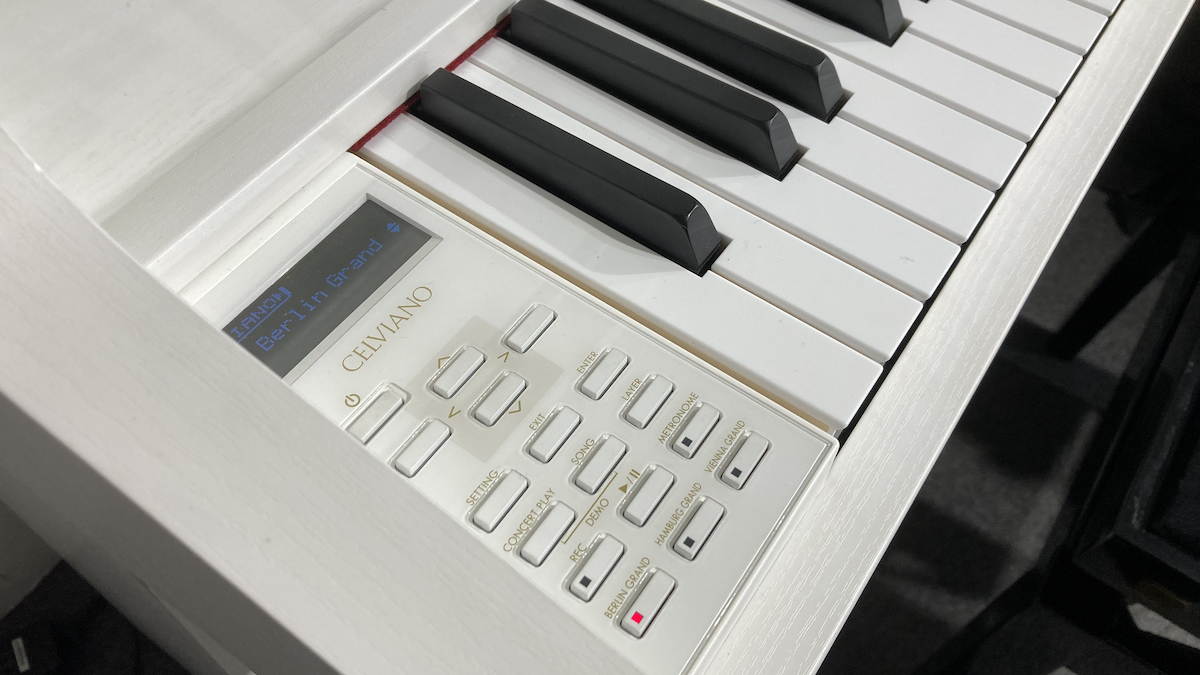
Sounding out
There are three main grand piano tones on the GP-310, each named cryptically after the cities where the models of acoustic piano they were based on originated. The Berlin tone is based on the C.Bechstein flagship D282 model, and is suitably bright, full-bodied and rich as you’d expect. The Hamburg tone (based on a Steinway piano) is slightly less bright, boxier and rounder-sounding, while the Vienna tone is based on a Bosendorfer Imperial Grand ideal for tackling pieces from the classical period. There are standard, mellow and bright versions of each piano to choose from, giving you a grand total of nine variants, all eminently playable, so there should be at least one, probably more, that suits whatever playing style you’re into.
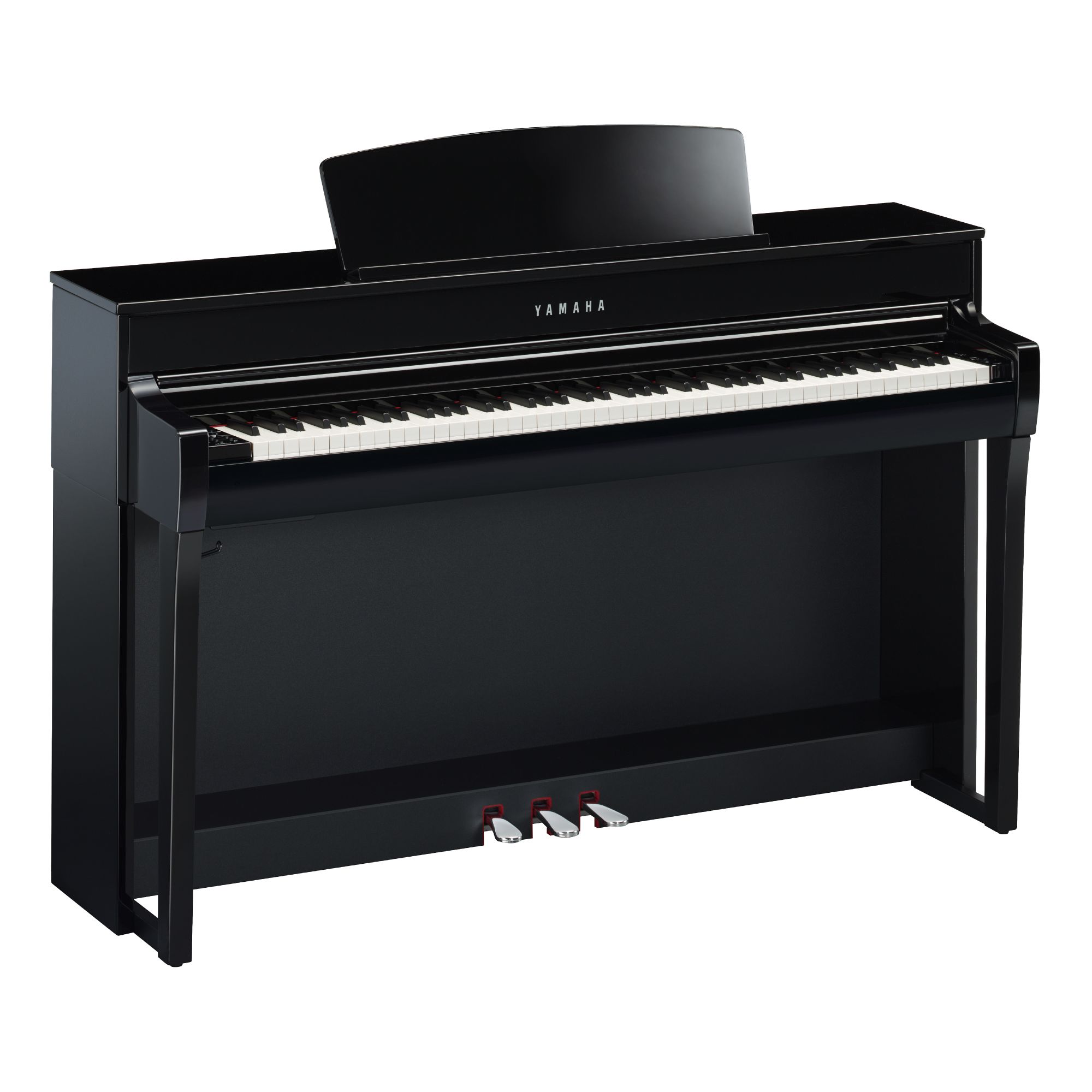
Yamaha Clavinova CLP-745
Majestic digital console piano from Yamaha with great CFX sound engine and Bluetooth audio and MIDI.
Roland LX706
High-end digital piano combining Roland’s PureAcoustic Piano Modelling technology, an improved Hybrid Grand Keyboard for deep expression and a 3-way, 6-speaker system for enhanced sound.
It’s not all good news though. In our tests, it became apparent that Casio seem to have concentrated mainly on the grand piano sounds, possibly to the detriment of some of the other tones. The harpsichord tone in particular is disappointingly thin with no key-off sample, and the Wurlitzer EP200A tone doesn’t really cut the mustard. The other electric piano sounds are perfectly usable, however, and there are some passable string, organ, vibraphone and bass sounds in there too to make up the numbers.
You don’t really shell out over two grand on a digital piano for its ‘bass with ride cymbal’ tone - what’s important here are those grand piano tones, and in the case of the GP-310, these are truly excellent. Casio have done their homework enough to produce an instrument that responds and behaves like a grand piano when you play it, the opening lid and C Bechstein keyboard mechanism making this piano unique amongst its peers. The moving hammers make a world of difference to the overall feel, and with the lid raised, you can see the hammers moving as you play, which greatly adds to the authenticity of the experience. All in all, the GP-310 is an extremely capable instrument that should reward pianists of all calibres hugely.
Many thanks to Ben and Olly at Miller’s Music Cambridge for their hospitality and loan of the GP-310 for the purposes of this review.
Casio GP-310 Celviano Grand Hybrid review: Hands-on reviews
Bonners pianos and keyboards
Gear4Music
Casio GP-310 Celviano Grand Hybrid review: Specifications
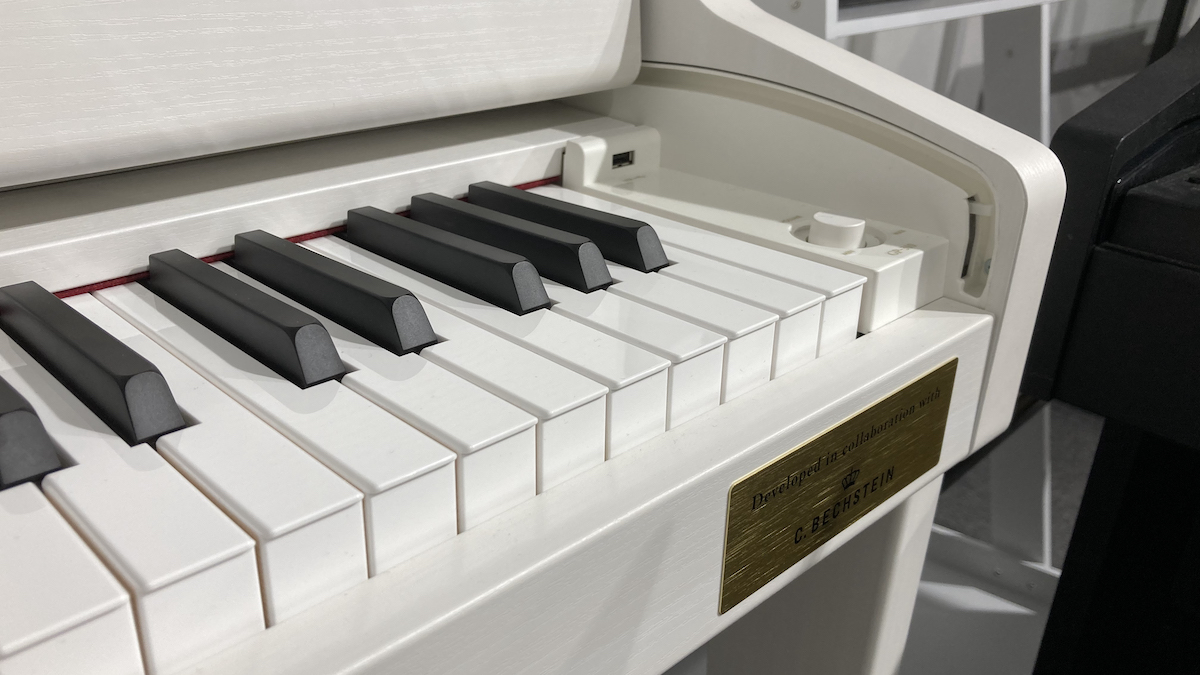
- Keys: 88 Fully-weighted, wooden, Natural Grand Hammer Action mechanism
- Pedals: Damper, Soft, Sostenuto. Half-pedalling support
- Polyphony: 256
- Sounds: 26
- Onboard songs: 60
- Connectivity: 2 x 6.3mm headphone outputs, USB to Host, USB to device 2 x 6.3mm Line inputs, 2 x 6.3mm Line outputs
- Speakers: Grand Acoustic II 6-way Speaker System
- Dimensions (mm) W x D x H: 1434 x 489 x 963
- Weight (kg): 78.5
- Contact: Casio
Dave has been making music with computers since 1988 and his engineering, programming and keyboard-playing has featured on recordings by artists including George Michael, Kylie and Gary Barlow. A music technology writer since 2007, he’s Computer Music’s long-serving songwriting and music theory columnist, iCreate magazine’s resident Logic Pro expert and a regular contributor to MusicRadar and Attack Magazine. He also lectures on synthesis at Leeds Conservatoire of Music and is the author of Avid Pro Tools Basics.
